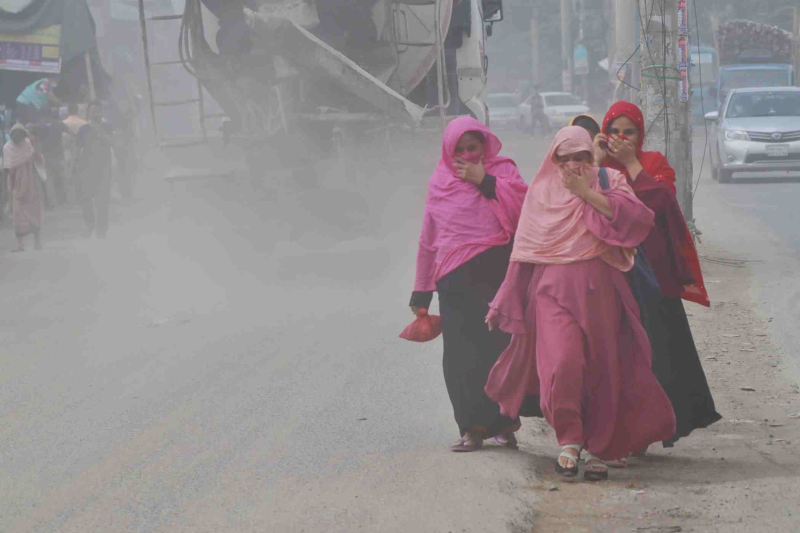- Public awareness campaign before fuel loading at Rooppur NPP |
- Chief Adviser Dr Yunus pays homage to martyred intellectuals |
- Martyred Intellectuals Day: A Nation’s Loss and Resolve |
- EC seeks enhanced security for CEC, ECs, election officials |
- Humanoid robots take center stage at Silicon Valley summit, but skepticism remains |
Dhaka’s air remains ‘very unhealthy’ Friday morning

Dhaka's air quality continued to be in the 'very unhealthy' zone on Friday morning.
With an air quality index (AQI) score of 260 at 8:14am, the megapolis ranked second in the list of world cities with the worst air quality.
An AQI between 201 and 300 is said to be ‘very unhealthy’, while a reading of 301 to 400 is considered 'hazardous', posing serious health risks to residents.
China’s Wuhan and India’s Delhi occupied the first and third spots with an AQI of 264 and 234, respectively.
Meanwhile, an AQI between 151 and 200 is considered 'unhealthy', while AQI between 100 and 150 unhealthy for sensitive groups.
In Bangladesh, the AQI is based on five criteria pollutants -- Particulate Matter (PM10 and PM2.5), NO2, CO, SO2 and Ozone.
Dhaka has long been grappling with air pollution issues. Its air quality usually turns unhealthy in winter and improves during the monsoon.
Air pollution consistently ranks among the top risk factors for death and disability worldwide. Breathing polluted air has long been recognised as increasing a person’s chances of developing a heart disease, chronic respiratory diseases, lung infections and cancer, according to several studies.
As per the World Health Organization (WHO), air pollution kills an estimated seven million people worldwide every year, largely as a result of increased mortality from stroke, heart disease, chronic obstructive pulmonary disease, lung cancer and acute respiratory infections, reports UNB.

